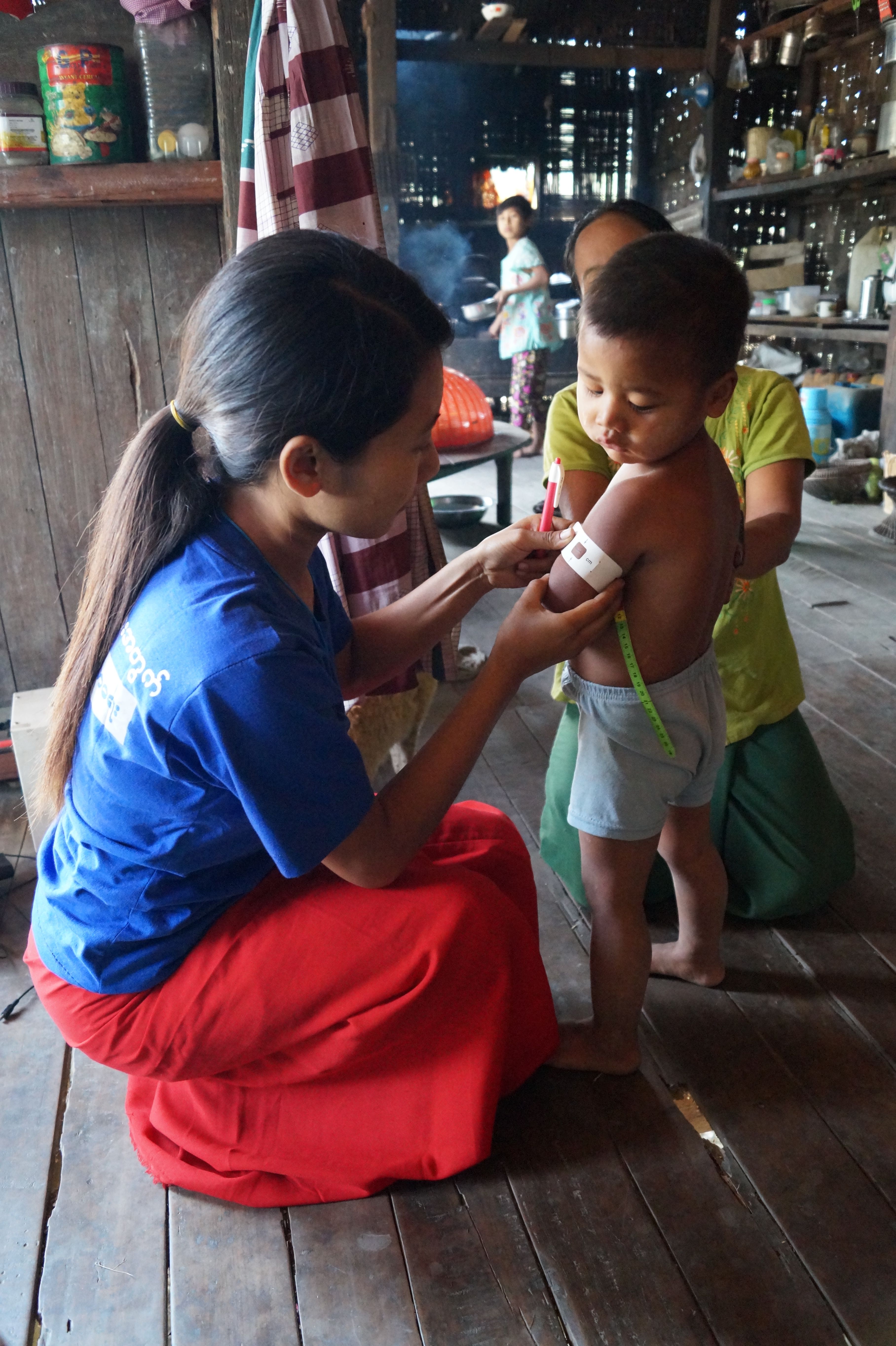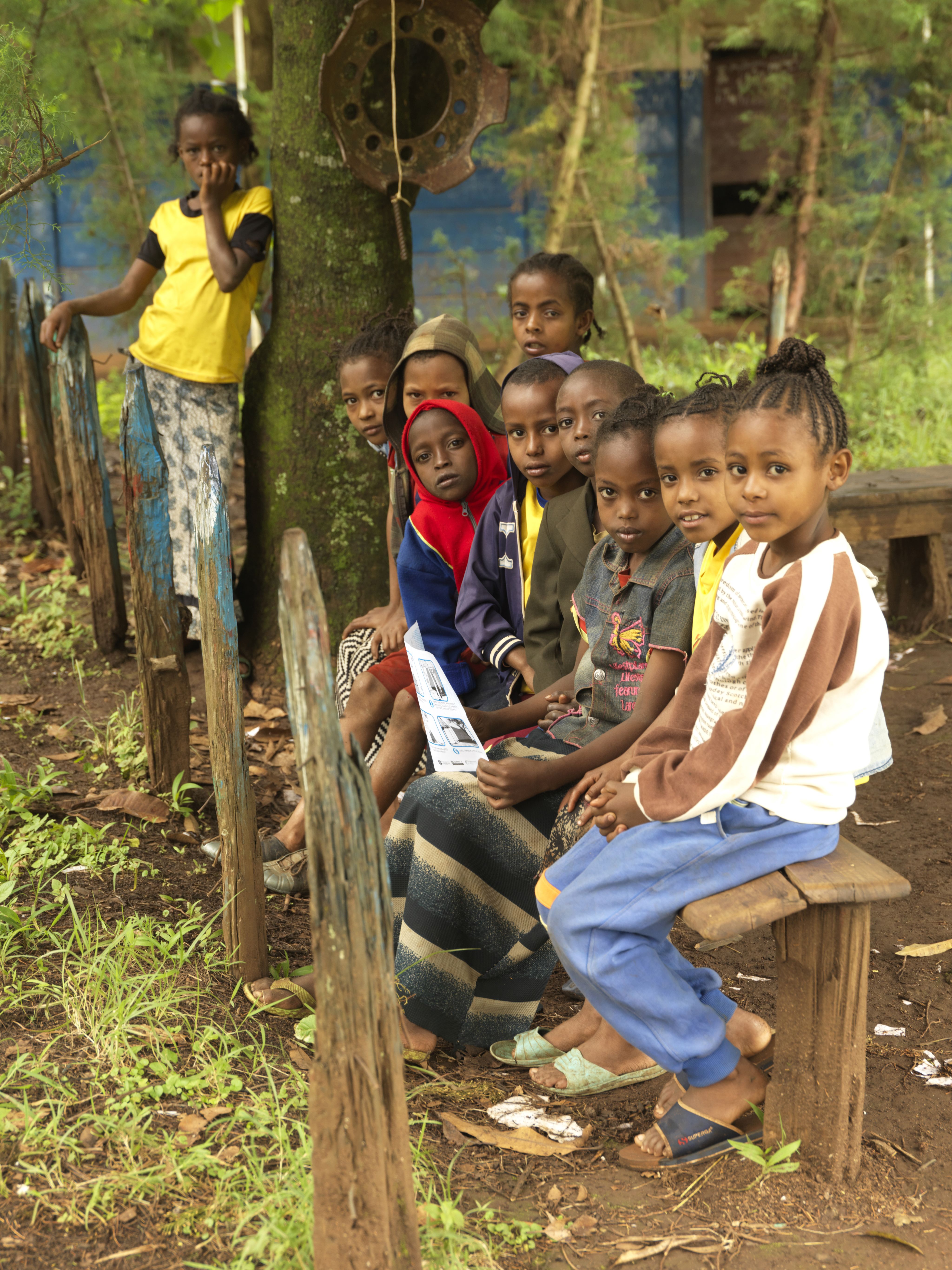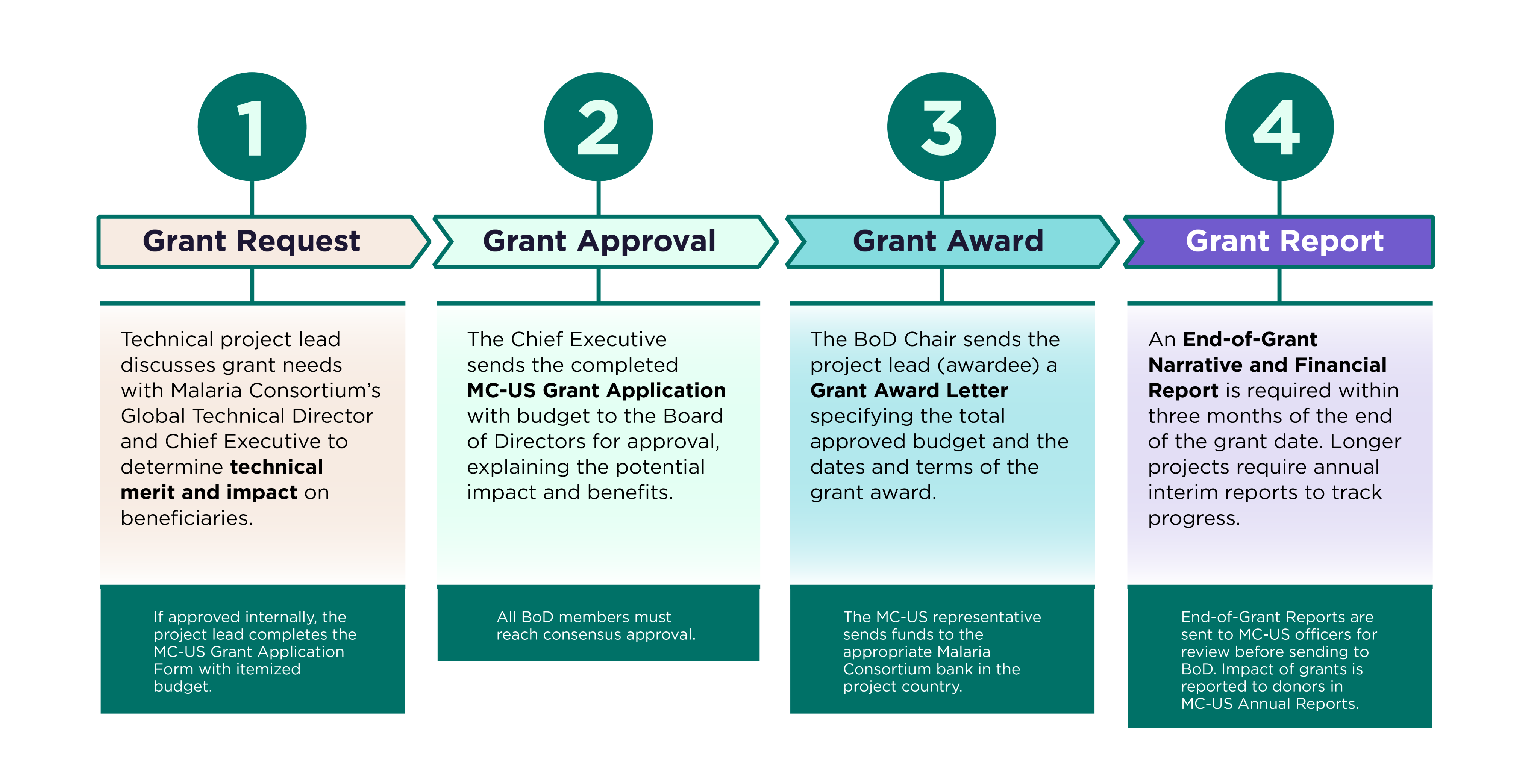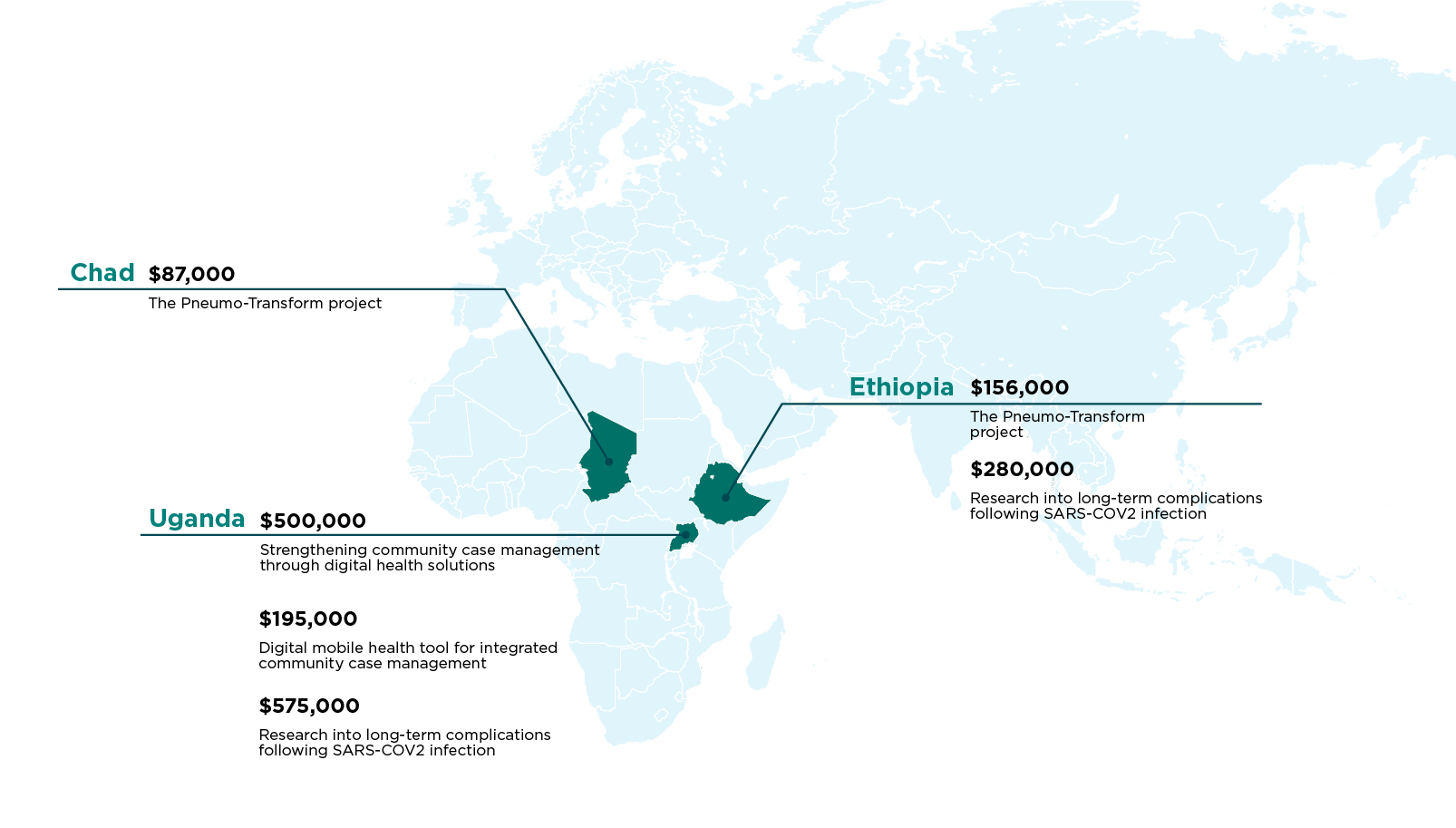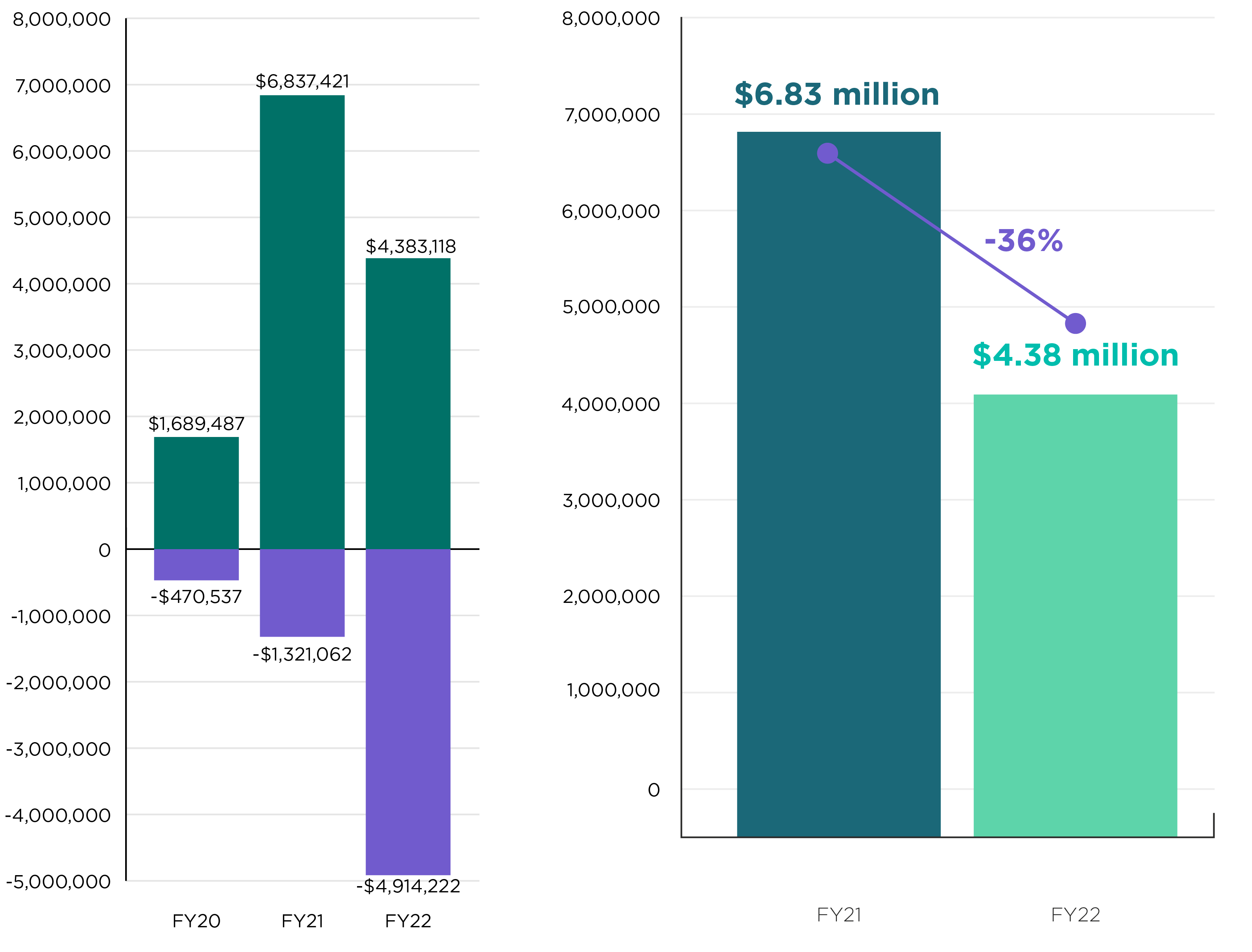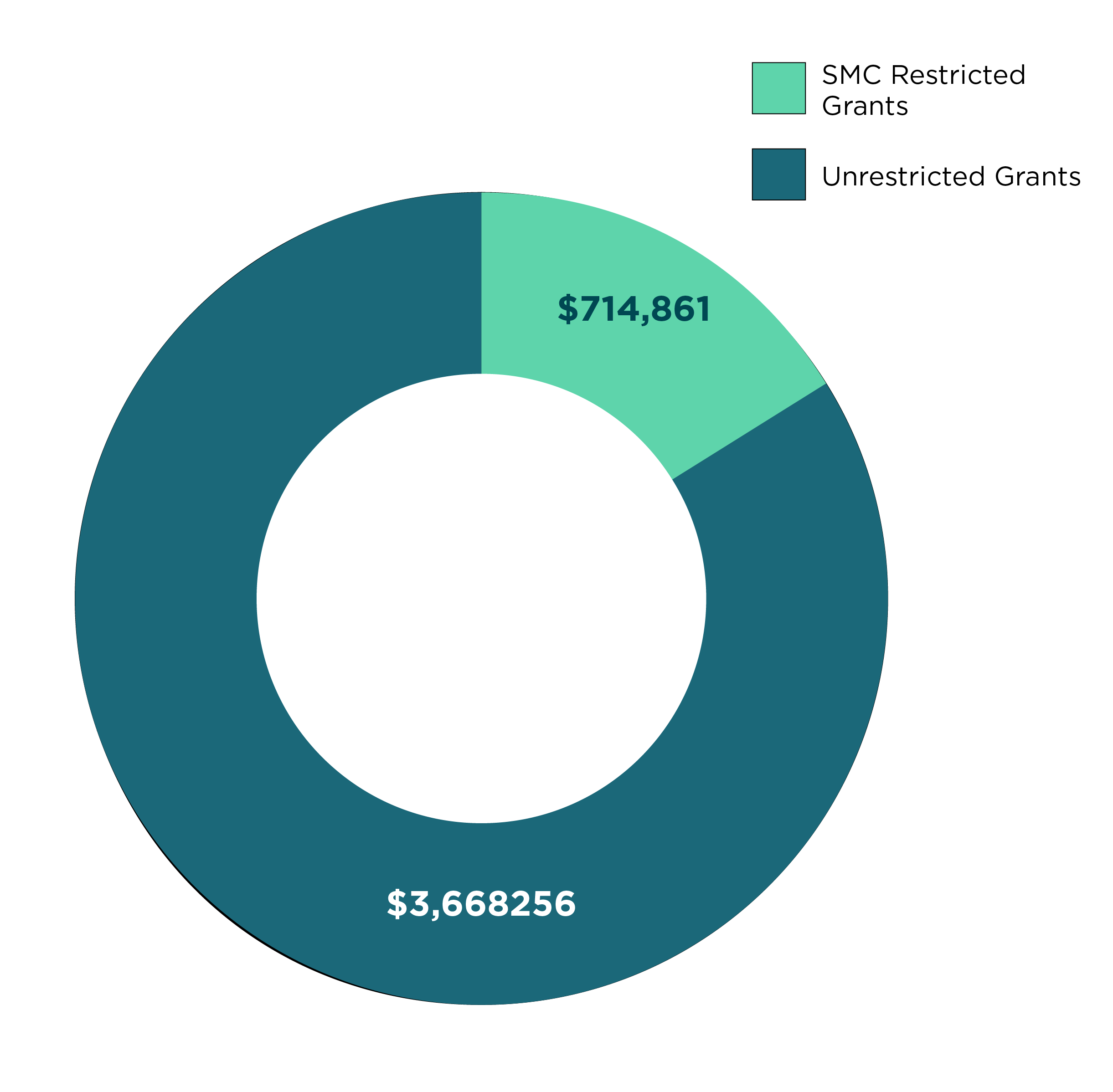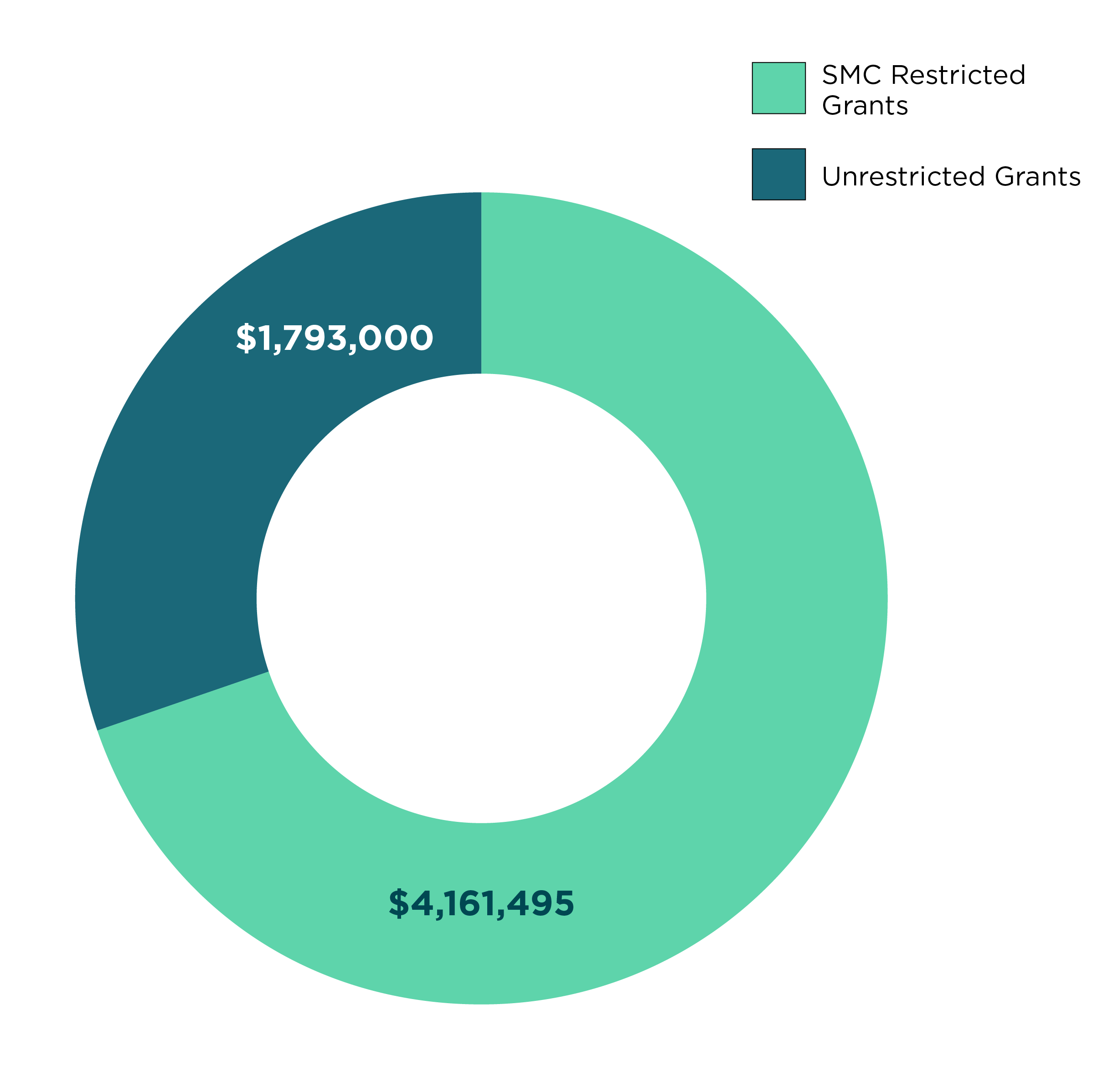MALARIA CONSORTIUM-US Inc.
FUNDRAISING AND GRANT REPORT 2022
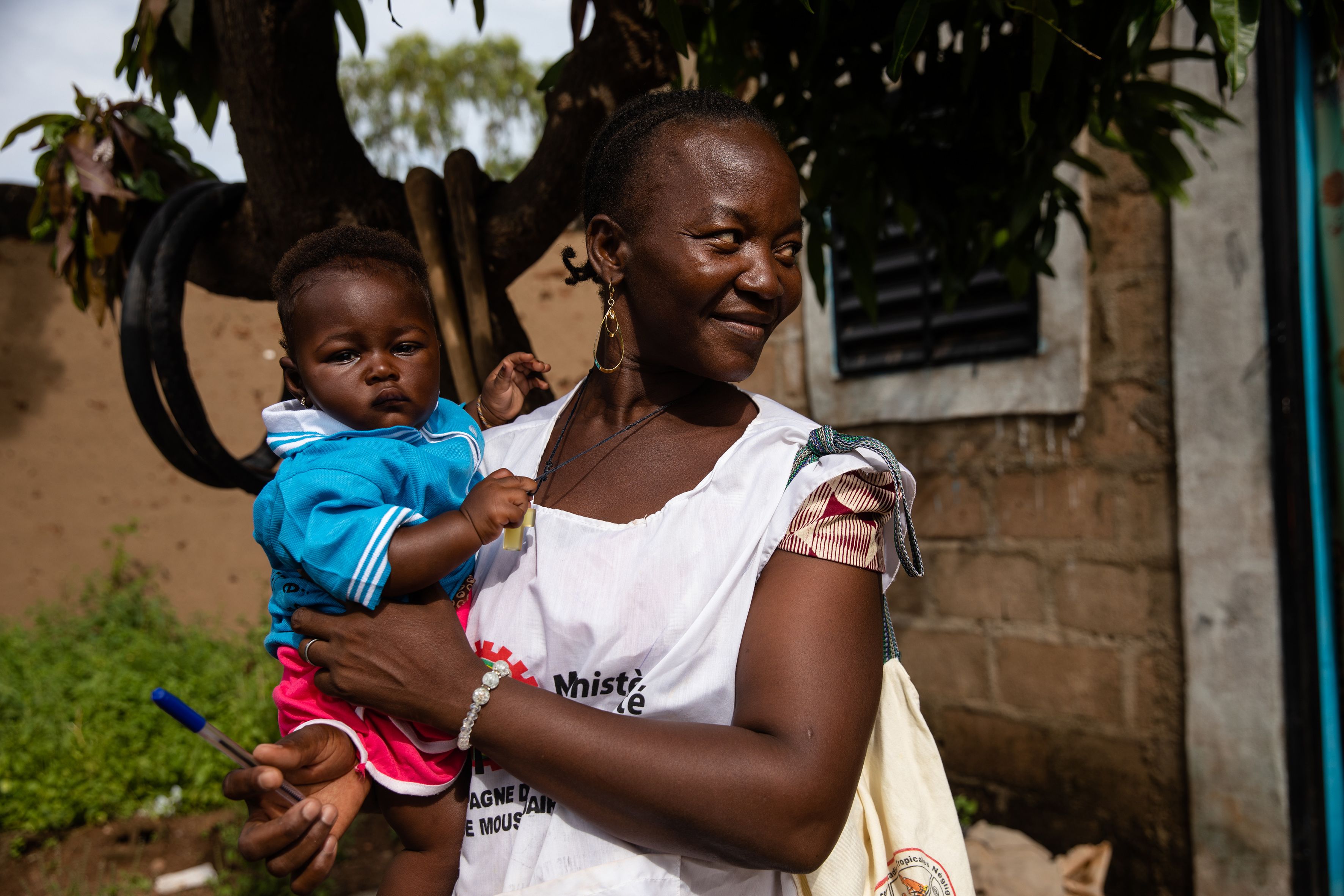
Malaria Consortium US, Inc. (MC-US) is a registered 501(c)(3) tax-exempt charity and the US entity of Malaria Consortium, a global leader dedicated to bringing an end to deaths from malaria and other treatable and preventable diseases in Africa and Asia. Our mission is to improve lives in Africa and Asia through sustainable, evidence-based programs that combat targeted diseases and promote universal health coverage. We do this by liaising with foundations, donors, and partners in the US to ensure all philanthropic donations make a positive impact for those most in need.
MC-US incorporation, registration and tax-exempt status
MC-US was incorporated on March 12, 2009, in the Commonwealth of Virginia and as of 2021 remains in good standing. MC-US received 501(c)(3) public charity tax-exempt status with the IRS in April 2011 and was assigned the EIN 98-0627052. MC-US is also authorized by the State of North Carolina (NC) to transact business, the office of MC-US is currently located in Raleigh, NC.
From 2011 to 2018 MC-US filed Form 990-N e-postcards with the IRS as required for annual charitable donations of less than $50,000. Since 2019, revenue has grown above $50,000 and IRS Form 990E has been filed annually. These IRS forms can be found by searching for Malaria Consortium US, Inc. or with our EIN in the IRS tax-exempt organization database.
Community heath worker checks the malnutrition status of a child, Myanmar
Community heath worker checks the malnutrition status of a child, Myanmar
Children sit together curious about malaria prevention activites in their community, Ethiopia
Community heath worker checks the malnutrition status of a child, Myanmar
MC-US leadership
MC-US is governed by a volunteer Board of Directors (BoD) with a set of established bylaws. The MC-US BoD meet twice a year to ensure MC-US is in compliance with US State and Federal regulations for 501(c)(3) charities, review Malaria Consortium’s operational and technical strategy, oversee financials, approve and award grant distributions which support new and existing projects, and review grant reports to ensure outcomes are being met. There are currently three directors, and each director has one vote.
MC-US is also comprised of three ‘officers’ – the Chief Executive of Malaria Consortium, the Chief Financial Officer and the MC- US Representative who serve as President, Treasurer and Secretary of MC-US respectively.
The BoD retains pro-bono legal counsel with Morrison & Foerster LLP, an international law firm located in Washington, DC.
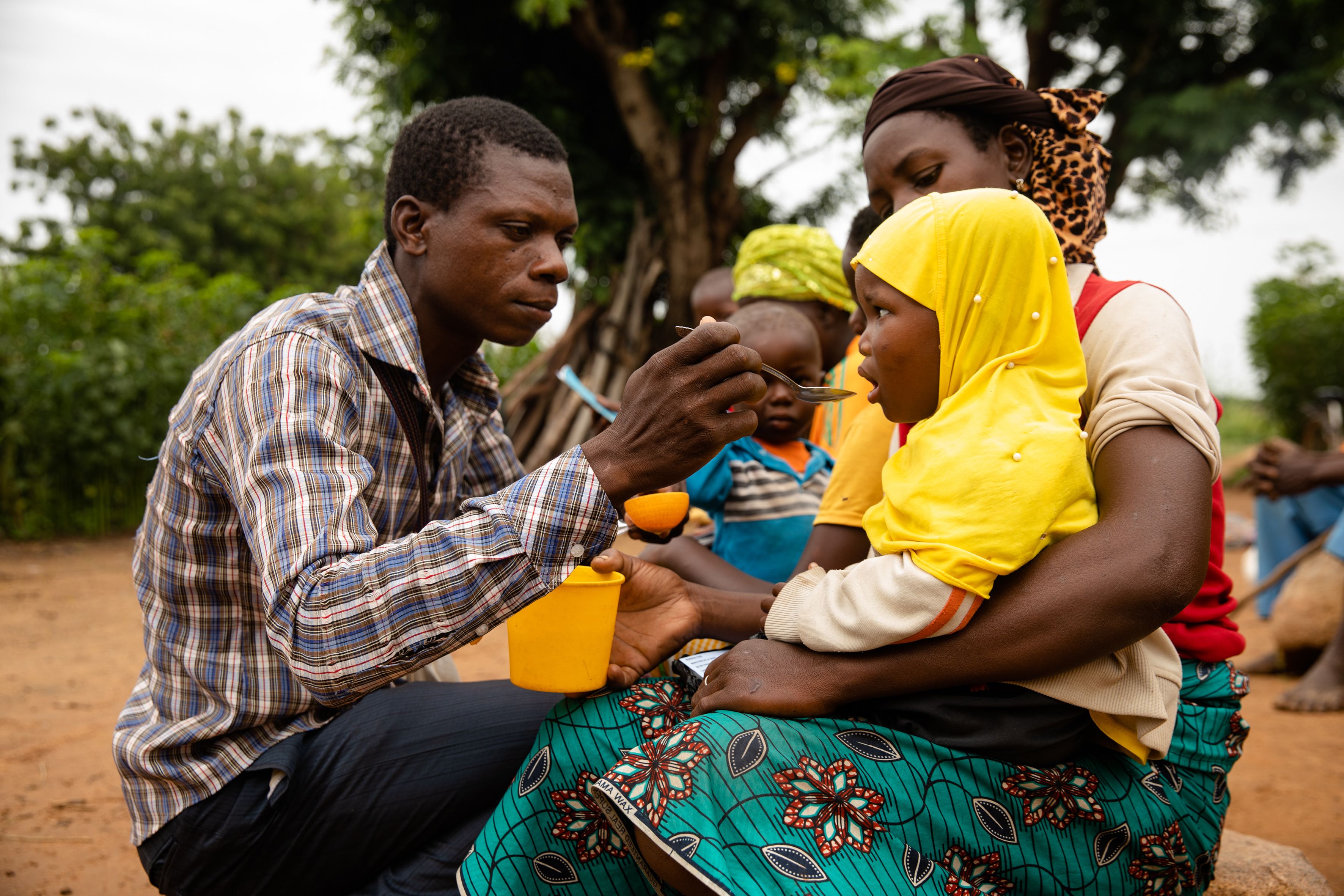
How grants are awarded
Grants are awarded to Malaria Consortium host countries worldwide based on where they can have the greatest impact. Grant applications for implementation and research projects, from training community health workers and securing essential medicines to pioneering research on malaria and COVID-19, are aligned with Malaria Consortium’s 2021-2025 strategy and seek solutions to global health challenges consistent with our mission.
The MC-US BoD is responsible for awarding restricted, such as to our seasonal malaria chemoprevention (SMC) program or unrestricted grants to Malaria Consortium projects based on the available funds from donations and where they can have the greatest immediate impact.
MC-US follows a clear set of procedures and protocols for grant application, approval, award and reporting which can seen below.
Grants awarded in FY22
MC-US awarded eight grants in FY22 totaling $5,954,495. Two restricted grants were awarded to Malaria Consortium’s seasonal malaria chemoprevention (SMC) programs in Chad and Burkina Faso totaling $4,161,495. Six grants were awarded from unrestricted funds for Malaria Consortium’s projects in Chad, Ethiopia, and Uganda totaling $1,793,000.
Uganda
April 2021: $500,000
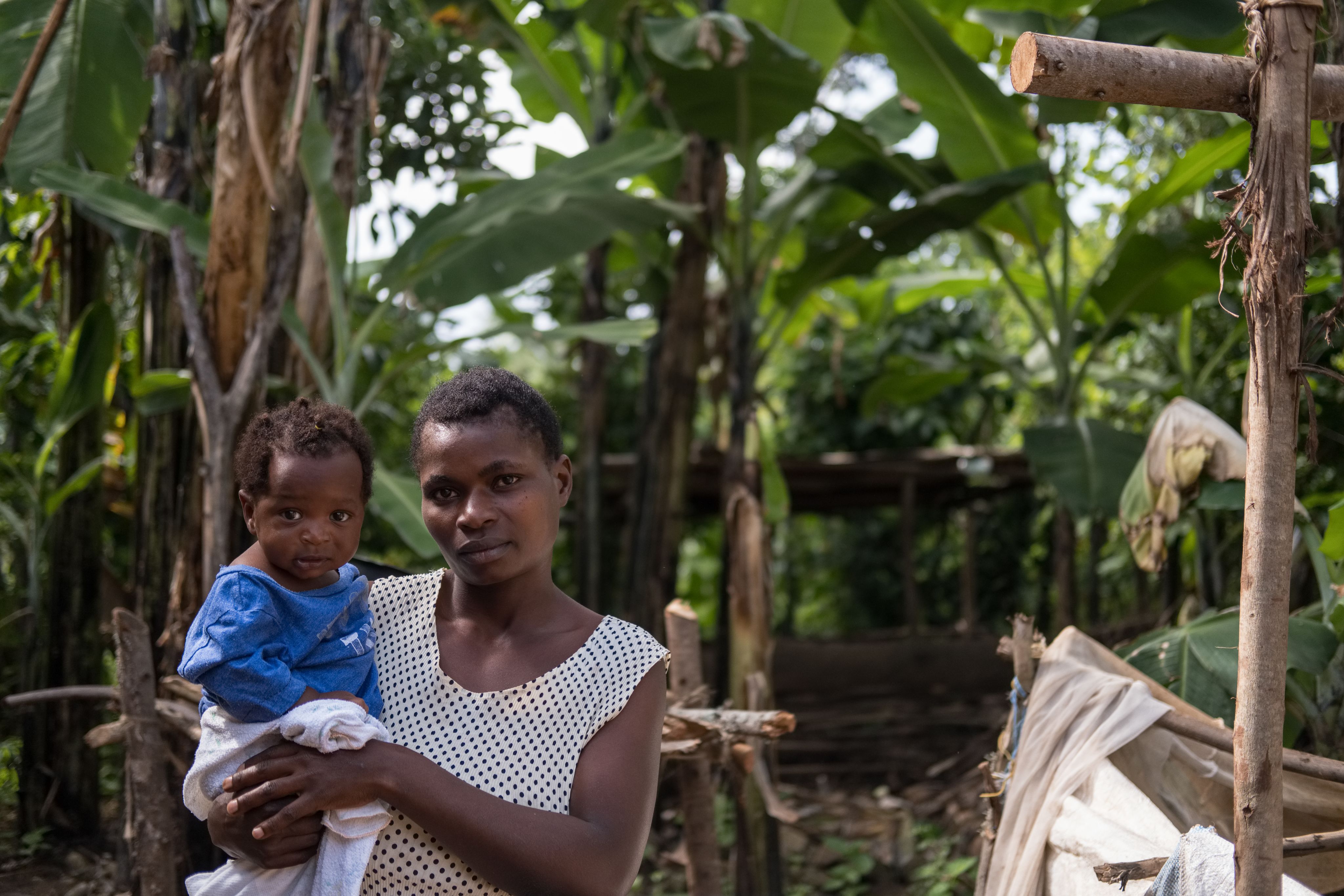
This grant helped to bridge funding gaps for continuation of the Sustaining Integrated Community Case Management (SURMa) project in north west Uganda after project funding from the UK Foreign, Commonwealth & Development Office (FCDO) abruptly ended due to the pandemic. This additional funding helped to complete the project and to prevent outbreaks form malaria which would have resulted if testing and treatment was no longer available.
Chad and Ethiopia
October 2021:
Chad awarded $87,000
Ethiopia awarded $156,000
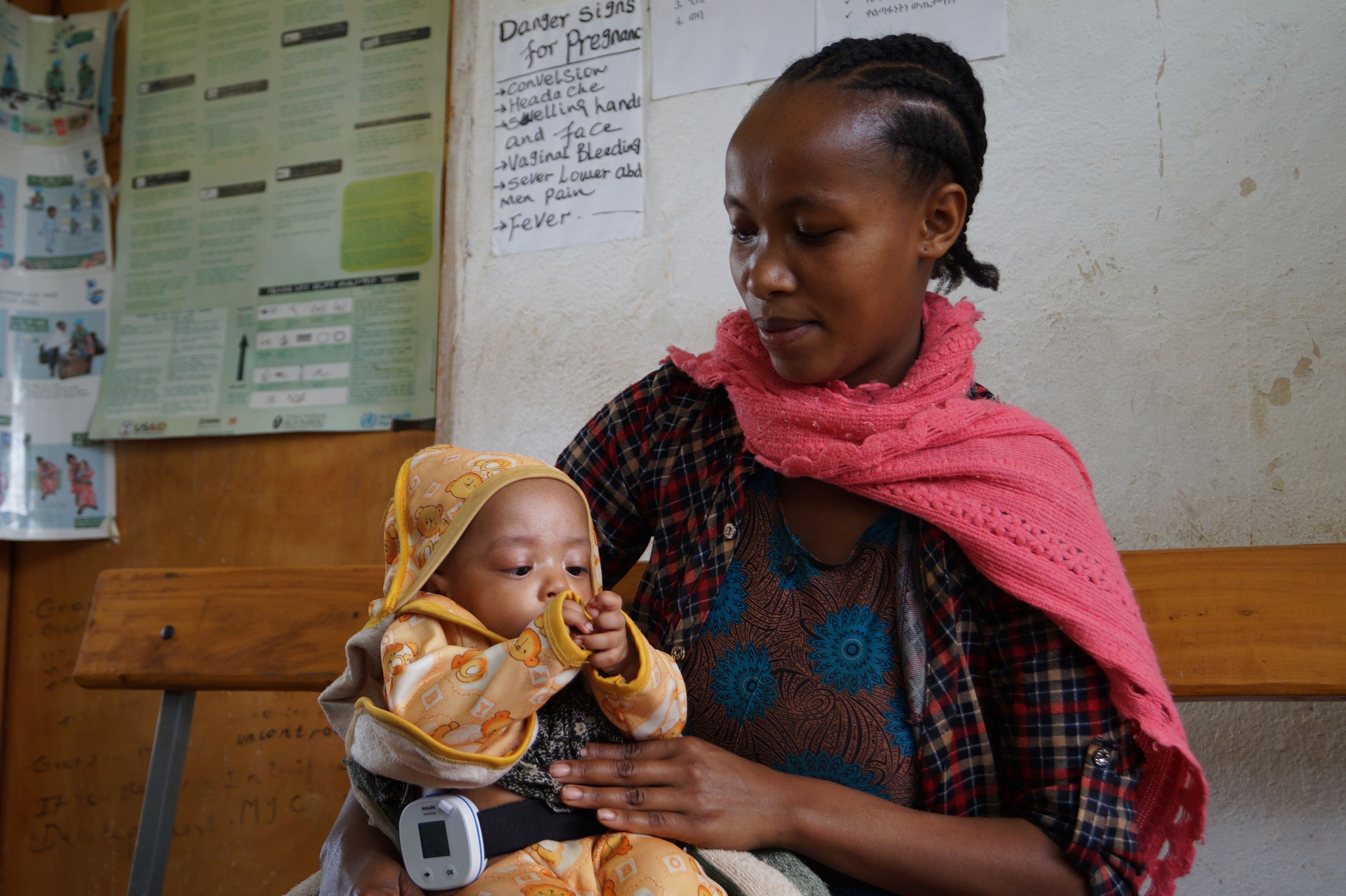
This grant is to support strengthening pneumonia response and case management in Chad and Ethiopia through the development of a Pneumonia Control Strategy (PCS) called the Pneumo-Transform project. The project has been conducting a situational analysis of the current methods and systems used to manage pneumonia cases at the different levels of the health system. Outcomes from the analysis will be used to develop and operationalize the PCS. It is expected that outcomes from this project may lead to determining major risk factors of pneumonia in children in order to advocate for further funding to improve pneumonia diagnostics, access to care, and improved targeted treatment aimed at lowering antibiotic resistance. It is expected that this grant will help to stimulate a $8.9m proposal from the French Innovation fund (FID).
Uganda
February 2022: $195,000
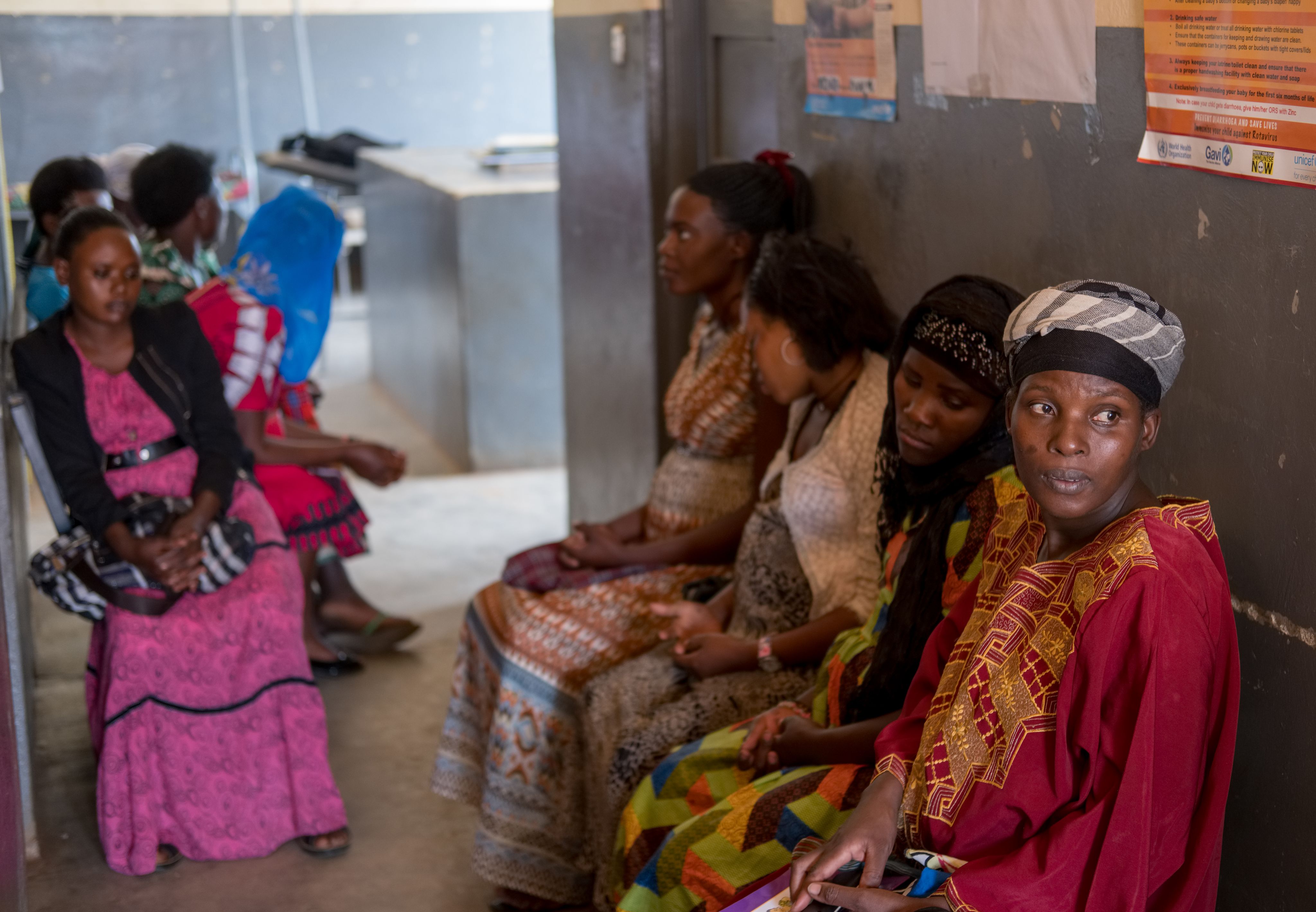
This grant is supporting the transformation of a traditional paper-based community data collection tool in Uganda’s Buikwe District, integrated community case management (ICCM) program into a digital mobile health tool. The digital platform tools allow village health teams (VHT)—Uganda’s ICCM trained community health workers—to assess, diagnose and treat malaria, pneumonia, diarrhea and malnutrition in children under five through an innovative, real-time community surveillance tool with geo-spatial capabilities to map disease trends. In addition, a digitized supervision module was added to help improve the quality of service delivery and identify medical commodity quantities to prevent stock outs of essential medicines.
The pivot to develop a digital ICCM tool demonstrated functionality of data recording and use of ease for supervision and management of the ICCM program to be able to use rapid data access for decision making and more accurately diagnose children under five to receive appropriate treatment and care. This project is also testing effective methods which can be used to improve capture and use of community-based health information, as well as demonstrating the feasibility of improving the mentorship and motivation of VHTs. It is expected that this will lead to improving the quality of community based malaria diagnosis and treatment in the most hard to reach of populations. Outcomes from this project will be used as a proof of concept for the Ministry of Health to advocate for scale up of mHealth for ICCM and to catalyze potential donor funding including PMI, firstly across the whole of the target district, then scale-up nationally.
Uganda and Ethiopia
March 2022:
Uganda awarded $575,000
Ethiopia awarded $280,000
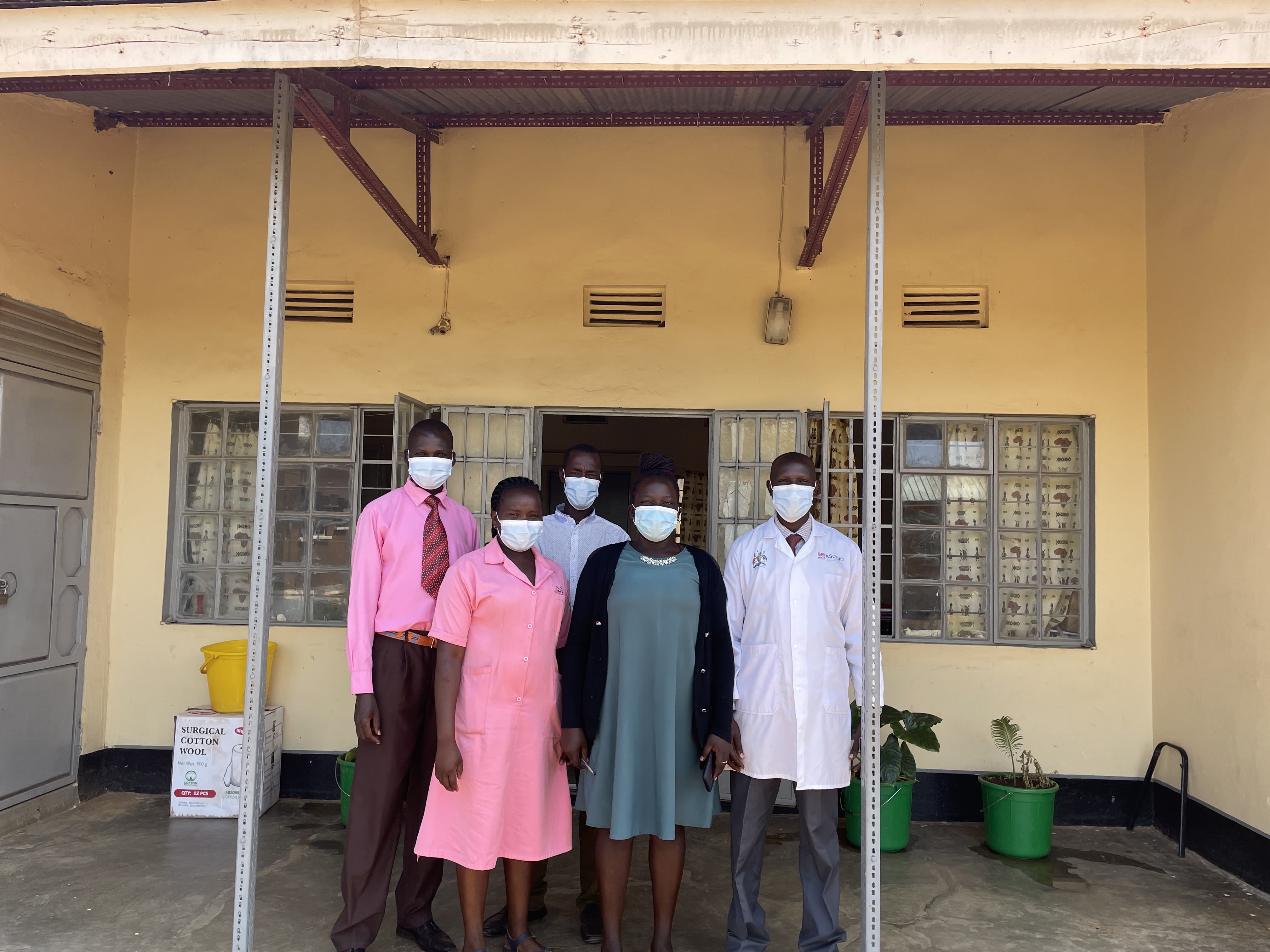
This research aims to determine the burden of malaria and long-term complications following SARS-CoV-2 infection and assess healthcare pathways for the management of fever and other long-term complications following SARS-CoV-2 infection. The study will provide much needed data on the possible increased risk of malaria infection in individuals following SARS-CoV-2 infection in these two countries and other similar settings in Africa where malaria remains and major cause of sickness and death. Any such increase in risk of malaria following SARS-CoV-2 infection would be a major public health concern in Africa especially when the previous gains in malaria burden reduction seen over the past decade have recently stalled.
We will also be able to determine the burden of fever as a clinical presentation of any long-term complications of SARS-CoV-2 infection across these populations.This study will be done in collaboration with the Ministry of Health and spans an 18 months period (March 2022-September 2023) and will be conducted across different health facilities/districts in the country.
FY22 Philanthropic fundraising
65 percent of the FY22 charitable donations came from individuals and foundations, mostly paid through donor advised funds (DAFs). One anonymous donor made a $1.5 million unrestricted donation from National Philanthropic Trust.
21 percent of the donations were from online giving platforms such as Network for Good, Rethink Charity, Benvity, Front Stream, Charity Navigator, Just Giving, Pay Pal and Amazon Smile.
Nine (9) percent of donations were from individuals who donated through the MC-US website, and five (5) percent were from matching corporate donations and academic institutions.
We would like to extend our sincere gratitude for your generous donations to Malaria Consortium-US this past year. We are delighted to have your continued support. Through your generosity we have been able to continue to support multiple projects and research which are contributing to saving lives and reducing the burden of targeted diseases in Africa and Asia. You truly make the difference for us, and we are extremely grateful!
MC-US Financials
The fiscal year for MC-US Inc. matches that of Malaria Consortium commencing on April 1st and ending on March 31st of the following year. A management fee of 12 percent is applied to restricted grants awarded for SMC.
IRS filing
MC-US taxes are filed each year on August 15th (the 15th day of the fifth month after the end of the organization’s fiscal year).
As outlined in the IRS guidelines for annual reporting requirements for exempt organizations, 501(c)(3) tax-exempt charities with an annual gross revenue of $50,000 or less are required to file a Form 990-N e-postcard. MC-US filed and e-postcard between 2011 and 2018. Beginning in FY19, when our annual growth exceeded $50,000, MC-US has filed the long Form 990-E. FY21 MC-US taxes are available for public inspection on the IRS website.
FY21 Audited accounts
In July 2021 MC-US engaged the firm of Hollingsworth Avent Averre & Purvis, P.A. in Raleigh, NC to conduct a financial audit of accounts for the previous fiscal year ending March 31, 2021.
Support
|
Contributions received |
$6,837,421 |
|
Total revenue |
$6,837,421 |
Functional expenses
|
Grants |
$1,318,949 |
|
Office expenses |
$983 |
|
Management and general office expenses |
$1,130 |
|
Total expenses |
$1,321,062 |
InThe FY22 audit of accounts will be available before the end of 2022
Change in net assets
|
Increase in net assets |
$5,516,359 |
|
Beginning net assets |
$1,946,050 |
|
Net assets end of year |
$7,462,409 |
MC-US 3 year annual revenue growth and expenditure
Annual revenue growth FY21 to FY22
FY22 Revenue
MC-US had a 36 percent decline in revenue in FY22 compared to FY21. Annual charitable donations received in FY22 totaled $4,383,118. The decline in total revenue was due to the absence of $3.5 million received in FY21 for SMC from a single donor.
Despite the decline in total revenue, the total number of donors grew from 633 to 873. Most of the donations (37 percent) were received between the months of December and February.
Revenue by restriction
Of the total revenue received in FY22, 16 percent ($714,861) was restricted to the SMC project, and the majority of donations, 84 percent ($3,668,256) were unrestricted donations. This is a substantial growth in unrestricted funds as compared to FY21 where only 20 percent of funds were unrestricted and 77 percent were restricted to SMC. This was likely because of the total revenue in FY21, one donor donated $3.5m to the SMC project.
The FY22 audit of accounts will be available before the end of 2022.
FY22 Revenue by restriction
FY22 Net balance of accounts
|
Bank balance 1 April 2021 |
$7,462,409 |
|
Total revenue |
$4,383,118 |
|
Total grants disbursed |
($5,954,495) |
|
Total expenses |
($8,635) |
|
Bank balance 31 March 2022 |
$5,882397 |
The FY22 audit of accounts will be available before the end of 2022.
FY22 Fees and expenses
Total expenses for FY22 were $8,635. The largest expense was for CPA services to conduct the financial audit of accounts and submission of the IRS 990 form. The remaining fees were from incoming and outgoing bank wire transfer fees and to pay for renewal of state certifications for Virginia and North Carolina
FY22 Grant award disbursements
|
Total international outgoing wire transfers for grants |
($5,954,495) |
|
SMC restricted grants awarded |
($4,161,495) |
|
Unrestricted grants awarded |
($1,793,000) |
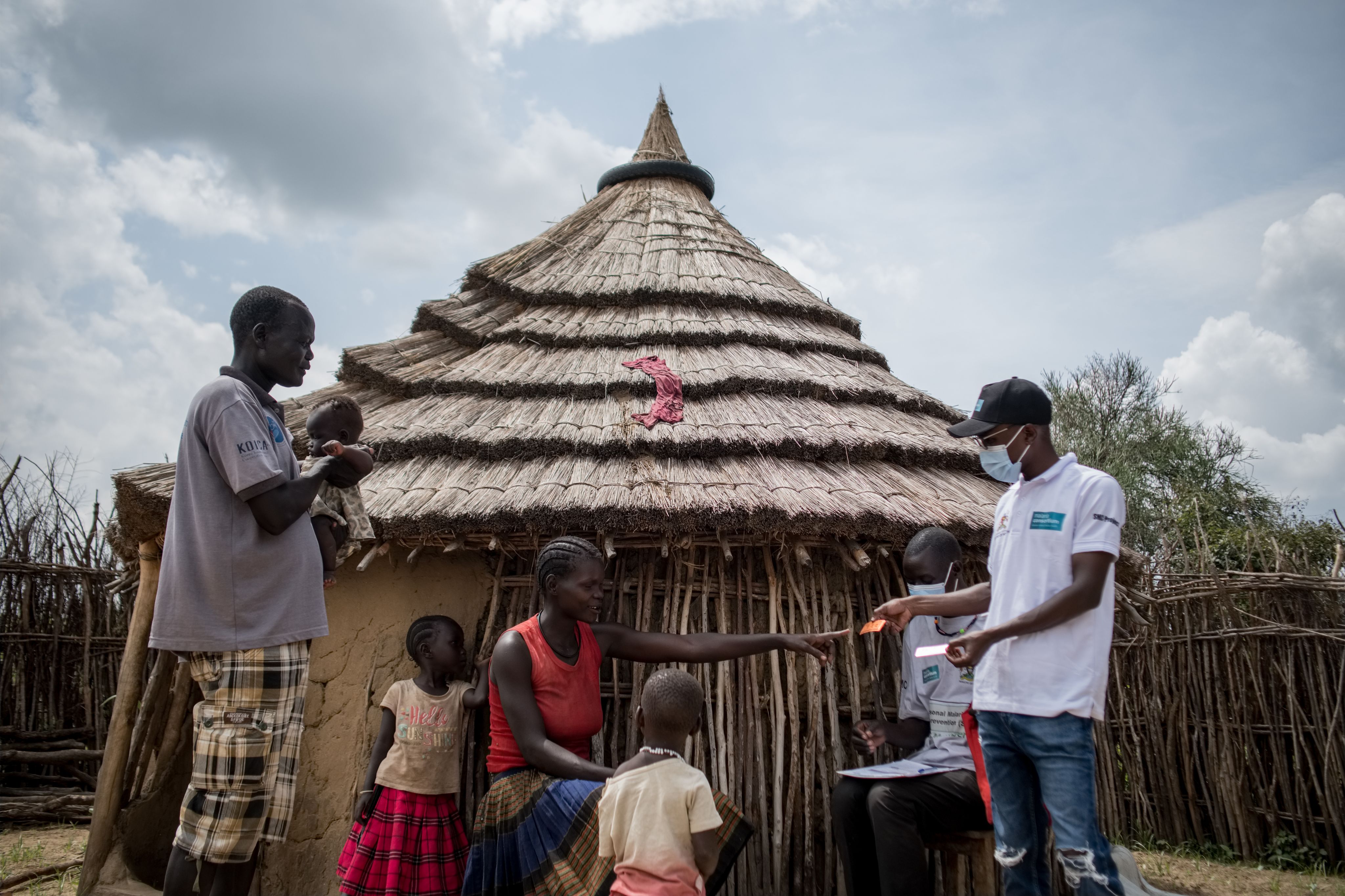
Opportunities for FY23 and onward
With continued support and philanthropic donations, the MC-US Board of Directors will continue to review grant opportunities which support Malaria Consortium’s 2021-2025 strategy with innovative research and reinforce projects where gaps in funding exists and which can benefit from additional financial support to yield better outcomes, quality, and impact.
Malaria Consortium will continue our commitment to support Universal Health Coverage (UHC) and design programs to help reach the UN Sustainable Development Goals (SDGs). Our goal is to accelerate the reduction of disease burdens which predominately affect maternal and child health such as malaria, pneumonia, dengue, malnutrition and diarrhea.
As a recognised implementer of at scale evidence-based programs we will continue to lead in malaria seasonal chemoprevention (SMC) and this year we expect to reach 24 million children in seven countries with life-saving anti-malaria medicines designed to prevent malaria infection. We will leverage our eight-year experience delivering SMC to urban and hard to reach communities to deliver other effective chemoprevention interventions included in the recent World Health Organization Global Malaria Guidelines, such as seasonal and perennial chemoprevention for school aged children and perennial malaria chemoprevention for infants.
Malaria Consortium is actively engaged with over 65 global agencies and partners in the private and public health sector, and academia to support research and deployment of malaria vaccines in high burden malaria countries. As the production of the newly approved Mosquirix RTS,S vaccine becomes available for more African countries and other novel malaria vaccines are ready for large scale feasibility and acceptability studies, Malaria Consortium plans to be at the forefront.
We will continue to deliver insecticide treated bet nets through national campaigns and antenatal clinics and guide vector control strategies in light of insecticide resistance and climate variability.
As more infectious disease threaten vulnerable populations, Malaria Consortium expects to be a key driver to increase access to and quality of differential diagnosis of fever for the management of uncomplicated and life-threatening febrile illnesses such as pneumonia, COVID and dengue. This will include continued research in point-of-care diagnostics and antimicrobial resistance (AMR), promoting childhood immunizations and life-saving vaccines, enabling access to oxygen and training health workers to treat and manage these diseases.
Lastly, we expect to grow initiatives for mobile health and digital platforms to improve data access and quality, assist surveillance and outbreak response, and provide sustainable pathways for universal health coverage.
